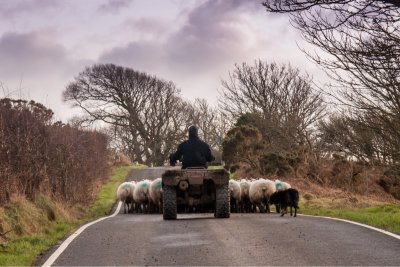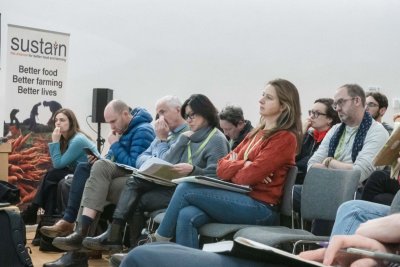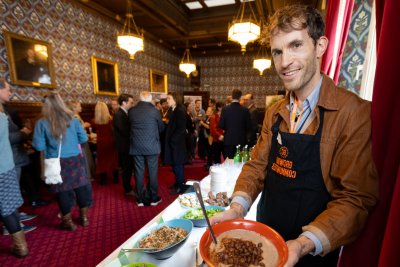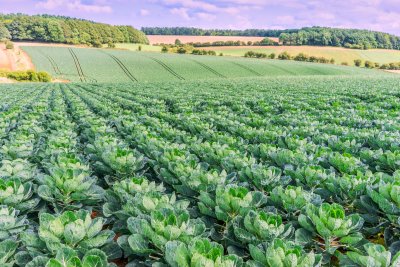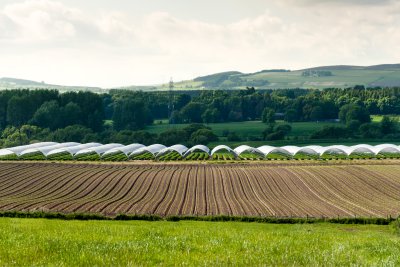Colin Tudge, one of the organisers, said: “Farming in general and Britain’s farming in particular is entering what surely will be a period of make or break, and we need to ask fundamental questions of the kind that are not asked often enough:
- Why should we care?
- What value should we place on farming?
- How should we pay for the kind of food and farming we really want and need? And in the spirit of “Act locally, think globally” we want to ask: What does all this mean for Oxfordshire?”
The discussion is being organised as part of the RSA Food, Farming and Countryside Commission’s UK-wide cycle tour “listening to people and recording their hopes, needs and challenges” and the Commission’s mandate to “shape a long-term vision for the future that’s fairer, stands the test of time and aligns more closely with changing public values and expectations, and involving people and communities in shaping that future”. One of the commissioners for the Food, Farming and Countryside Commission is Kath Dalmeny, chief executive of Sustain: The alliance for better food and farming.
The discussions will be continued at the Oxford Real Farming Conference (which celebrates its 10th anniversary on 3rd and 4th January, 2019).
Book your ticket for the Oxford Real Farming Conference, January 2019: http://orfc.org.uk/orfc-2019/
For more information please contact: Ruth West at ruth@feanetwork.org tel 01865 318997
The RSA Food, Farming and Countryside Commission comes to Oxfordshire (8th to 13th October, 2018). The group of farmers, customers, local businesses and policy specialists will be meeting at Sandy Lane Organic Farm on 9th October from 11am to 3pm.
Notes to editors
- According to a report by The Princes’ Countryside Fund (June 2017) an “NFU survey shows farmer confidence has taken a significant knock in the wake of the Brexit referendum – with levels dropping 18 points in the past two years”. This was despite the fact that many farmers voted for Brexit -- but before the bashing farmers received from this year’s extremes of weather. Even then the report found that only 35% of the farmers surveyed said that they would opt to do farming if given the choice. Contrast the views of farm-ers with the public’s rosy glow of farming. Apparently one in four “would happily give up our jobs today to become a farmer”. But then nearly 10% of people at large thought that farmers earn more than £75,000, and 60% thought that they took home more than the average £20,000.
- The Agriculture Bill has met with a mixed reception: environmental NGOs have generally welcomed it; the NFU did not, declaring the Bill “falls short of our aspirations on improvements to the environment and productivity, measures to tackle market volatility, ensuring free and frictionless trade, and access to a competent workforce. . .”; the Soil Association lamenting that the Bill makes no mention of organic farming and agroforestry.
- Summary of the Agriculture Bill (official version): “A Bill To authorise new expenditure for certain agricultural and other purposes; to make provision about direct payments during an agricultural transition period following the United Kingdom’s departure from the European Union; to make provision about the acquisition and use of information connected with food supply chains; to confer power to respond to exceptional market conditions affecting agricultural markets; to confer power to modify retained direct EU legislation relating to agricultural and rural development payments and public market intervention and private storage aid; to make provision about marketing standards and the classification of carcasses; to make provision for the recognition of associations of agricultural producers which may benefit from certain exemptions from competition law; to confer power to make regulations about contracts for the purchase of agricultural products from agricultural producers and securing compliance with the WTO Agreement on Agriculture; and for connected purposes.”
Sustainable Farming Campaign: Pushing for the integration of sustainable farming into local, regional and national government policies.

